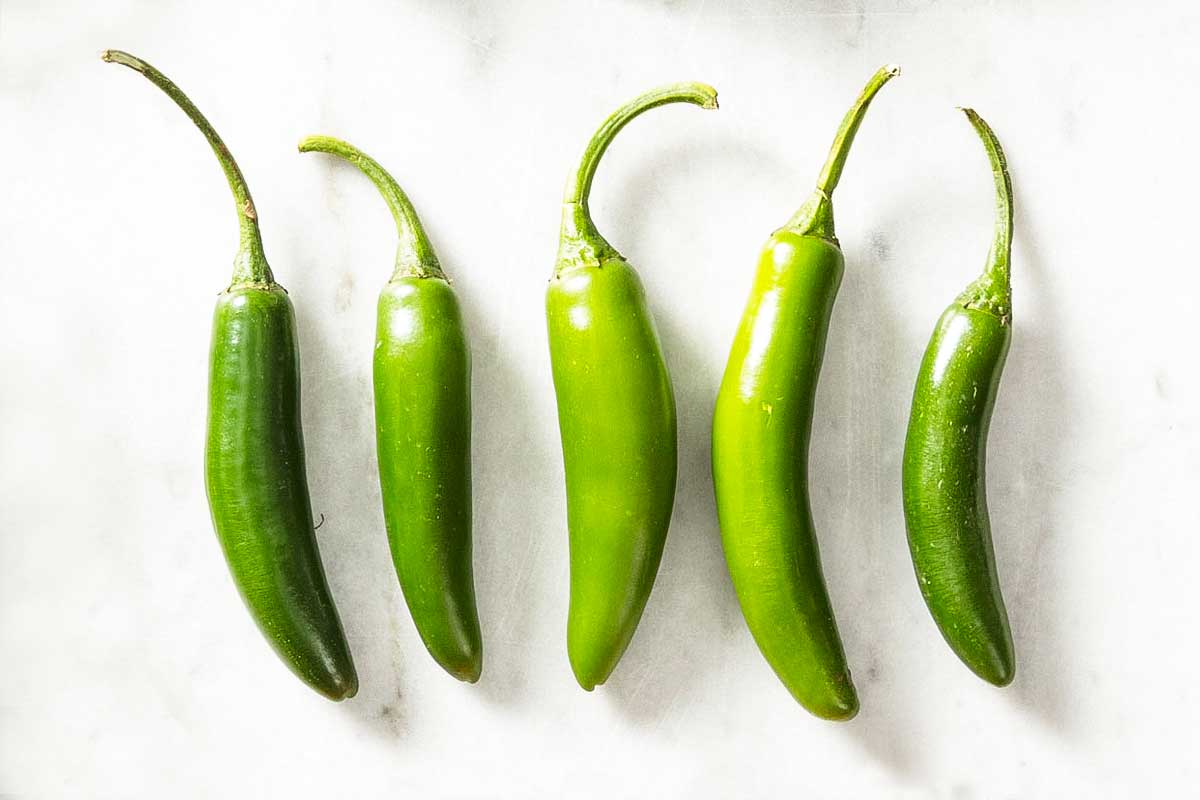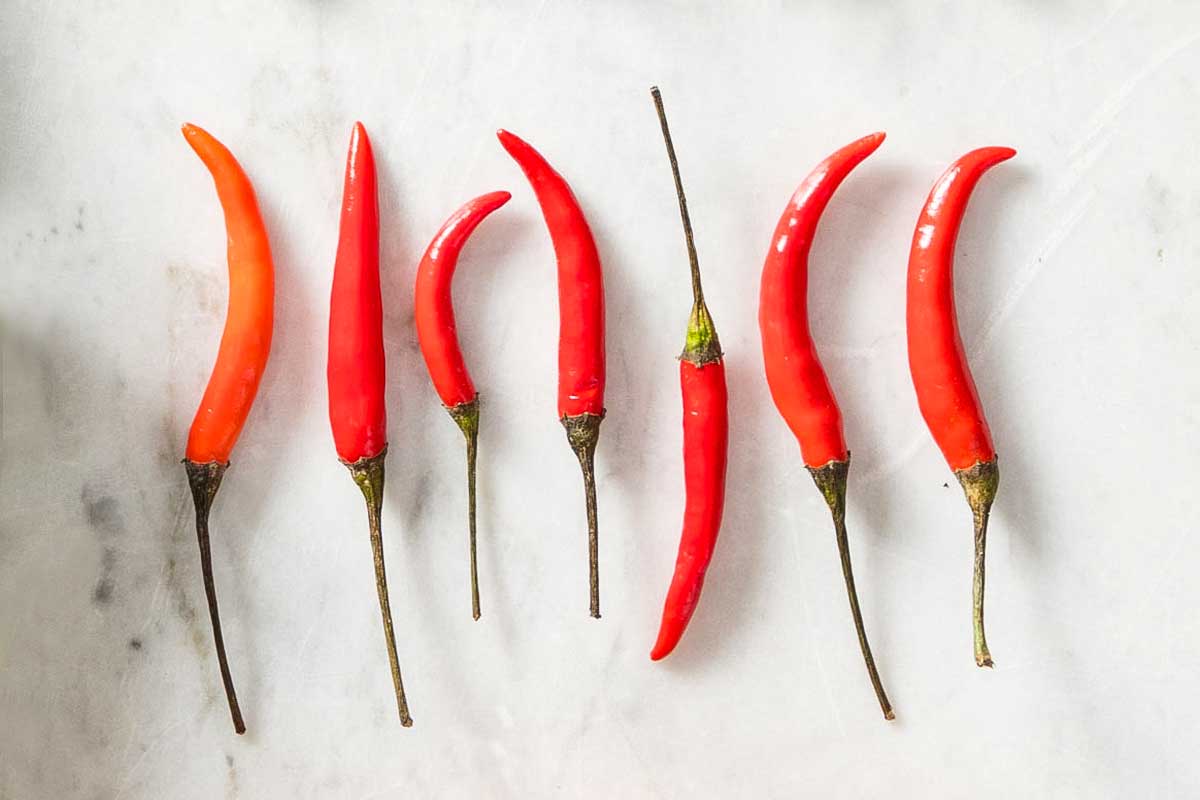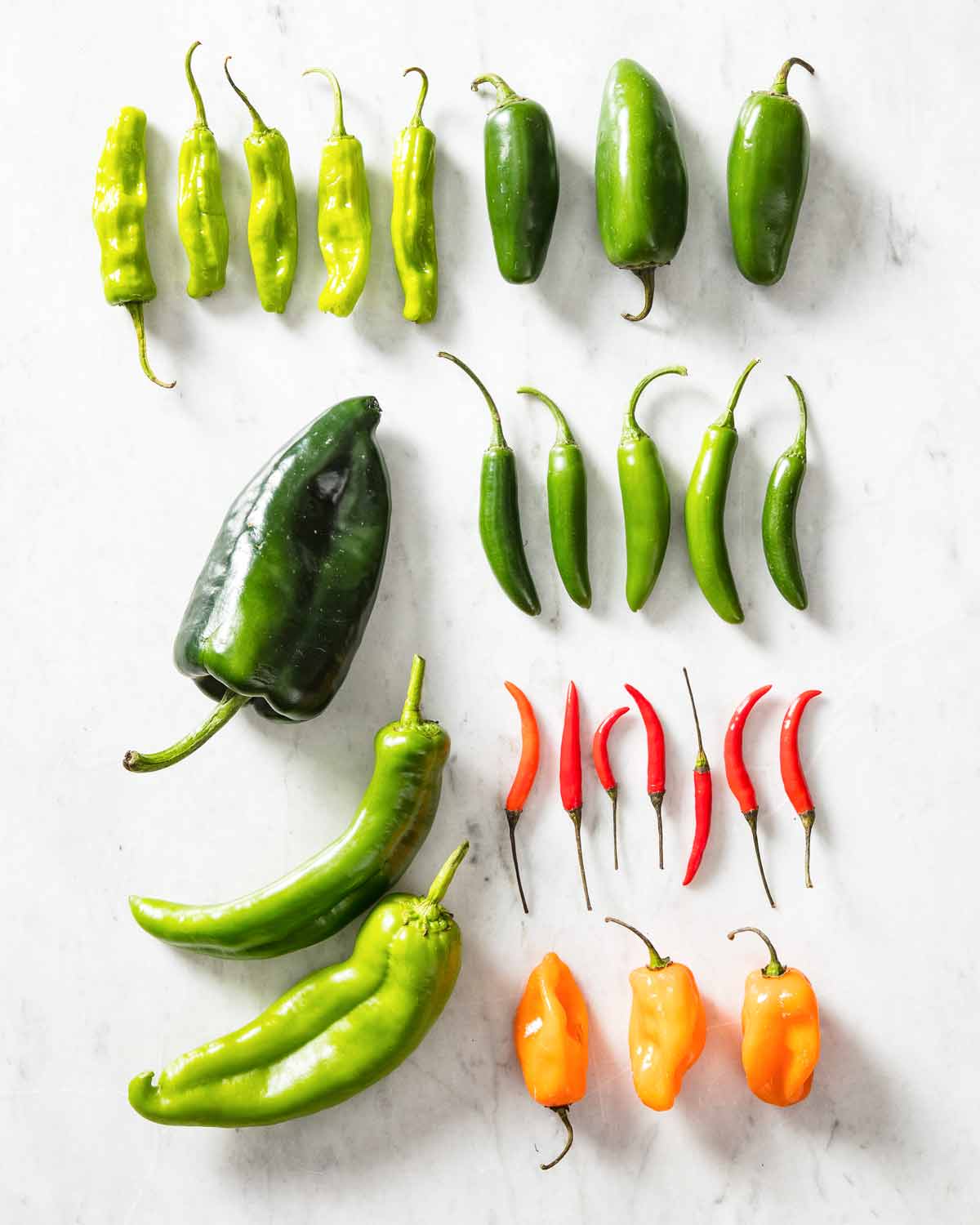
Fresh Chiles
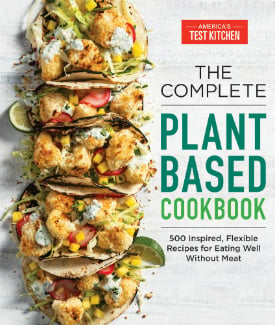
Chile peppers don’t just make foods hot; they also add nuanced layers of flavor to a dish. Since everyone’s taste buds are different—one person can enjoy Scotch bonnets while another can’t even go near jalapeños—you’ll want to let your preferences be your guide. Here’s a quick primer.
Shishitos
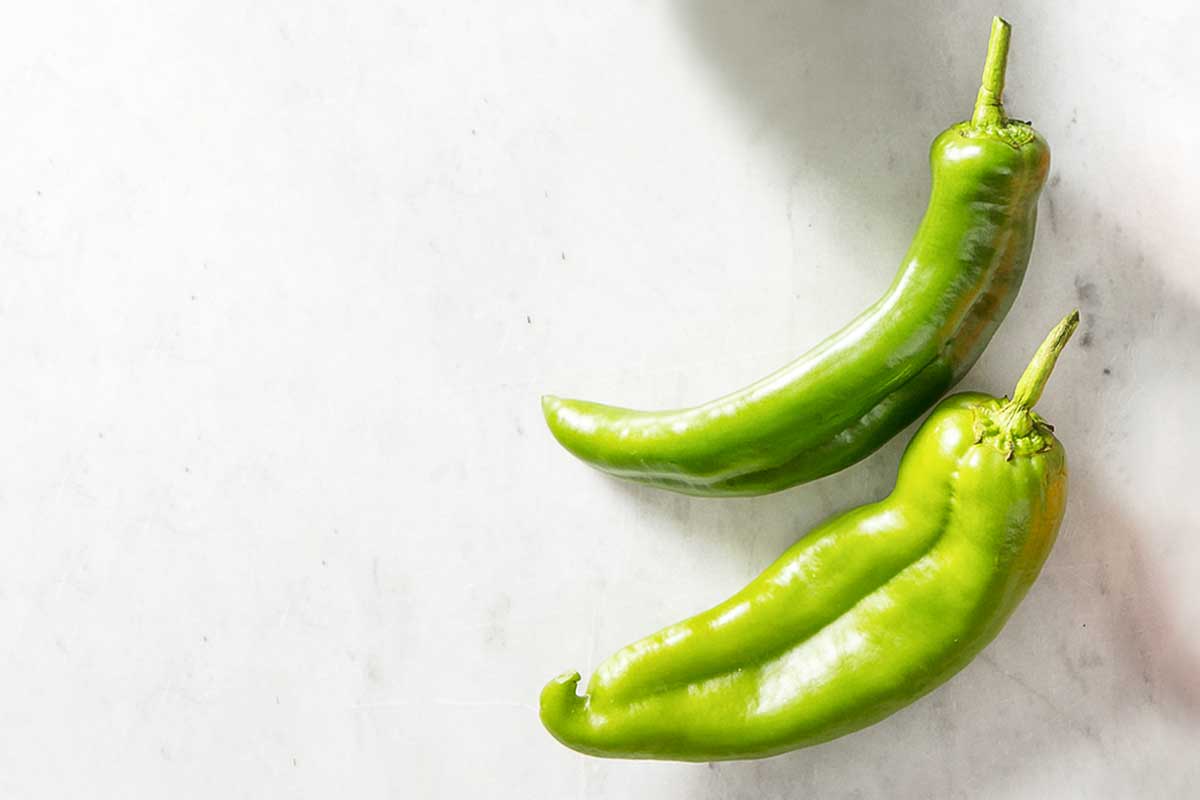
Shishitos are very mild medium-size Japanese chiles that are long, skinny, and shiny bright green, with a grassy, citrusy flavor. And since they’re mild, they can be dishes on their own, as with blistered shishito peppers. Substitute Padrón chile peppers. Heat:*
LC NOTE: One in every several shishito peppers will be fiery hot. Consider it sorta like playing an adventurous game of Russian roulette with far less dire consequences.
Poblanos
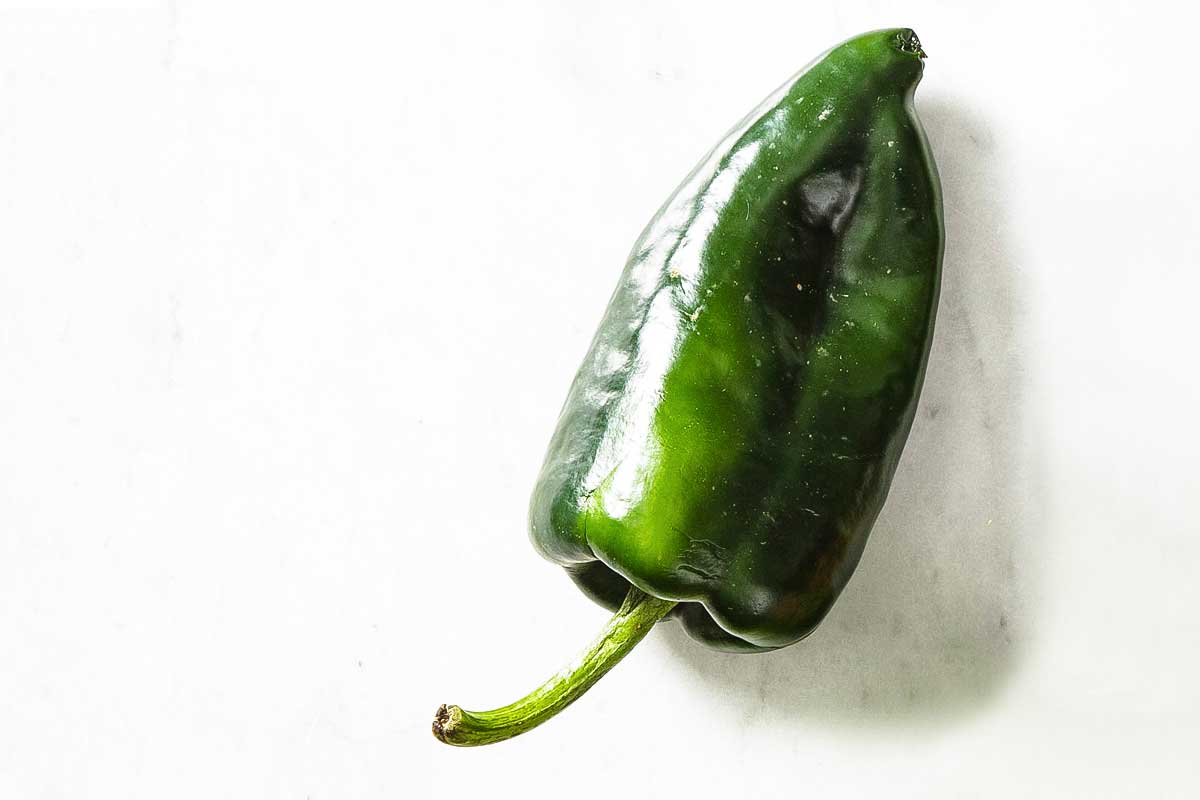
Poblanos are mild, large, triangular chiles that are green to red-brown in color, with a crisp, vegetal flavor. Substitute Anaheim chiles. Heat:*
LC NOTE: Poblanos are typically braised long and slow or, due to their rather generous girth, stuffed with all manner of indulgent things like sausage and cheese and then baked. We fancy them for bringing a slow undercurrent of heat to braised chicken with tomatillos.
Anaheims
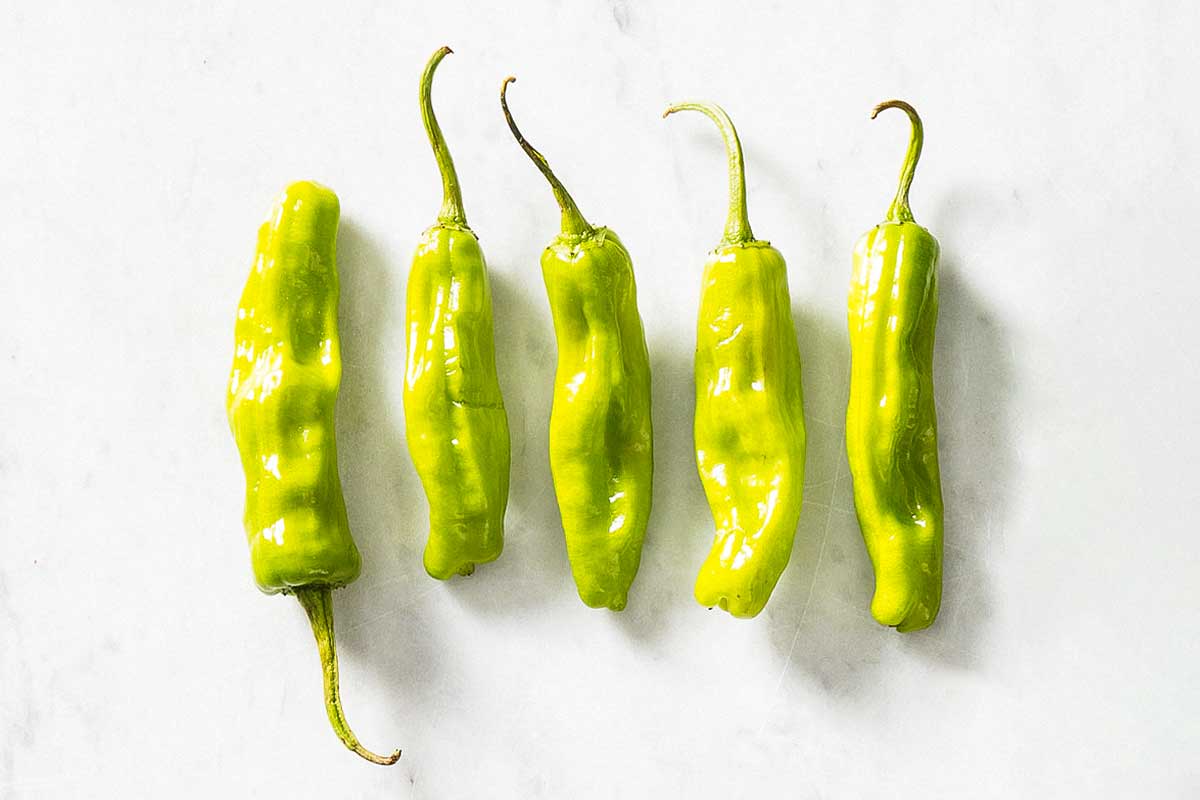
Want to Save This?
Anaheims are mild to medium-hot large chiles that are long and skinny, yellow-green to red, and mildly tangy and vegetal. Substitute poblanos. Heat:**
LC NOTE: Anaheims bring a slow, steady warmth that’s mitigated by pasta and lotsa cheese in our green chile macaroni and cheese.
Jalapeños
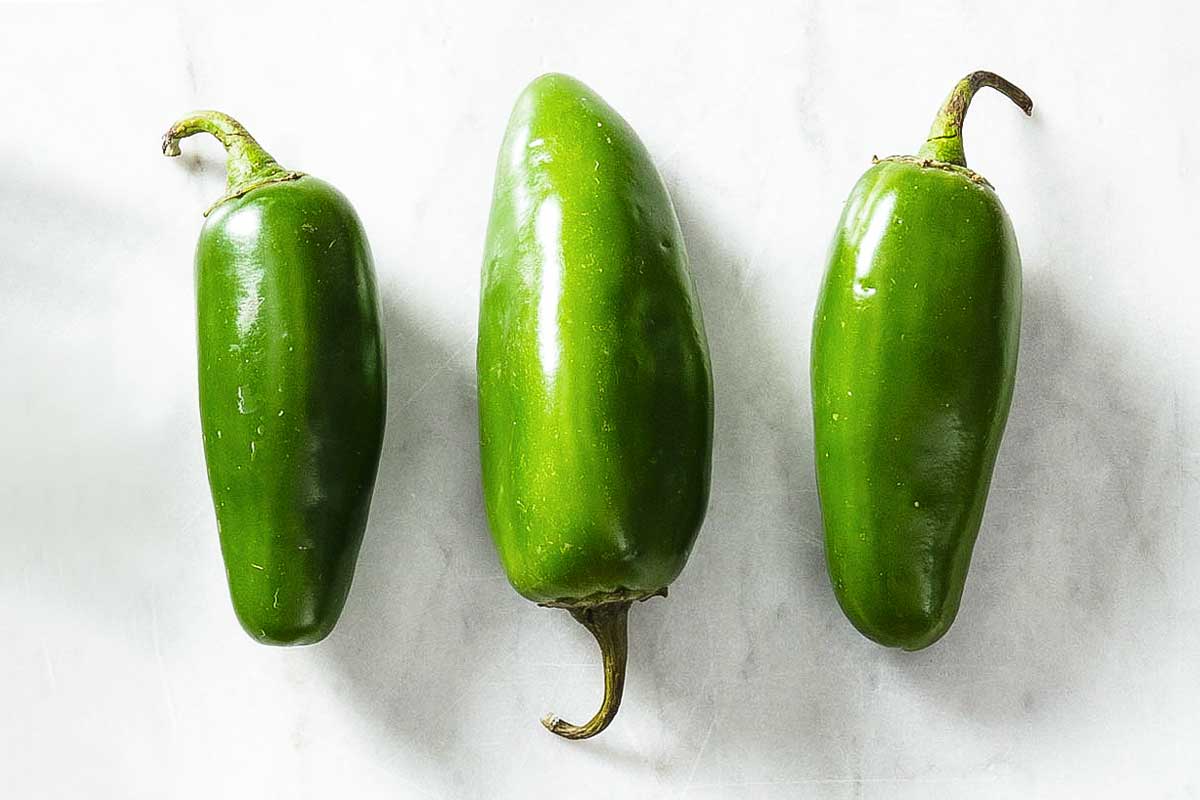
Jalapeños are medium-hot small green or red chiles that are smooth and shiny, with a bright, grassy flavor. Substitute serranos. Heat: **
LC NOTE: We appreciate the straightforward, reliable, nothing-to-guess flavor we can expect jalapeños to bring to everything from guacamole to cheese crusted grilled cheese.
Serranos
Serranos are medium-hot small dark green or red chiles with a bright, citrusy flavor. Substitute jalapeños. Heat: ***
LC NOTE: These lively peppers work almost anywhere, raw or cooked, though we’re partial to them in the slaw for these pulled pork tacos.
Thai chiles
Thai chiles are hot, bright red or green, narrow, and petite, with a clean flavor similar to black peppercorns. Substitute a half-dose of habaneros. Heat: ***
LC NOTE: Even kids have been known to pack some Thai chile heat when it comes in the form of the slightly sweet, spicy, salty Thai classic Pad Gkaprow Mu that’s made with ground pork.
Habaneros
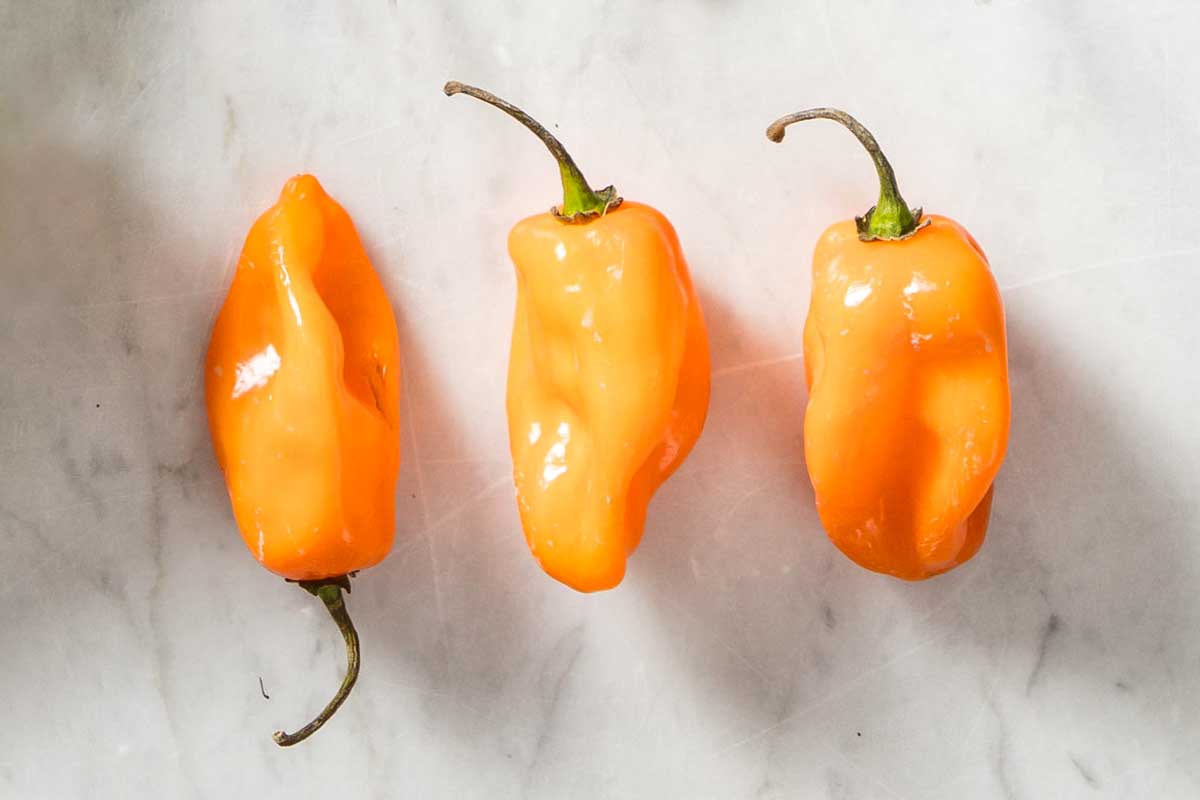
Habaneros are very hot, bulbous, bright orange to red, deeply floral, and fruity. Substitute a double dose of Thai chiles. Heat: ****
LC NOTE: Just know what you’re getting yourself into with these bold babies! The richness of braised pork in chile sauce is the perfect way to soak up some of that heat.
